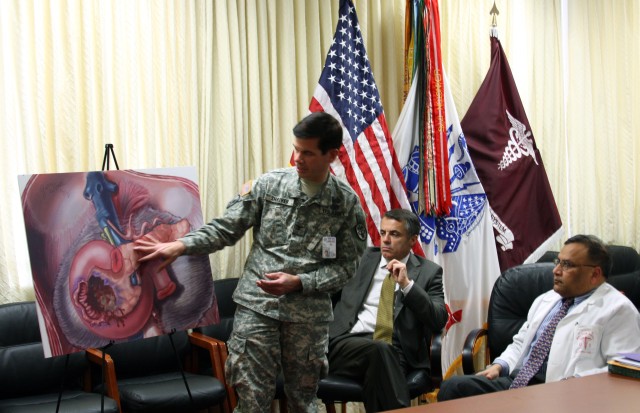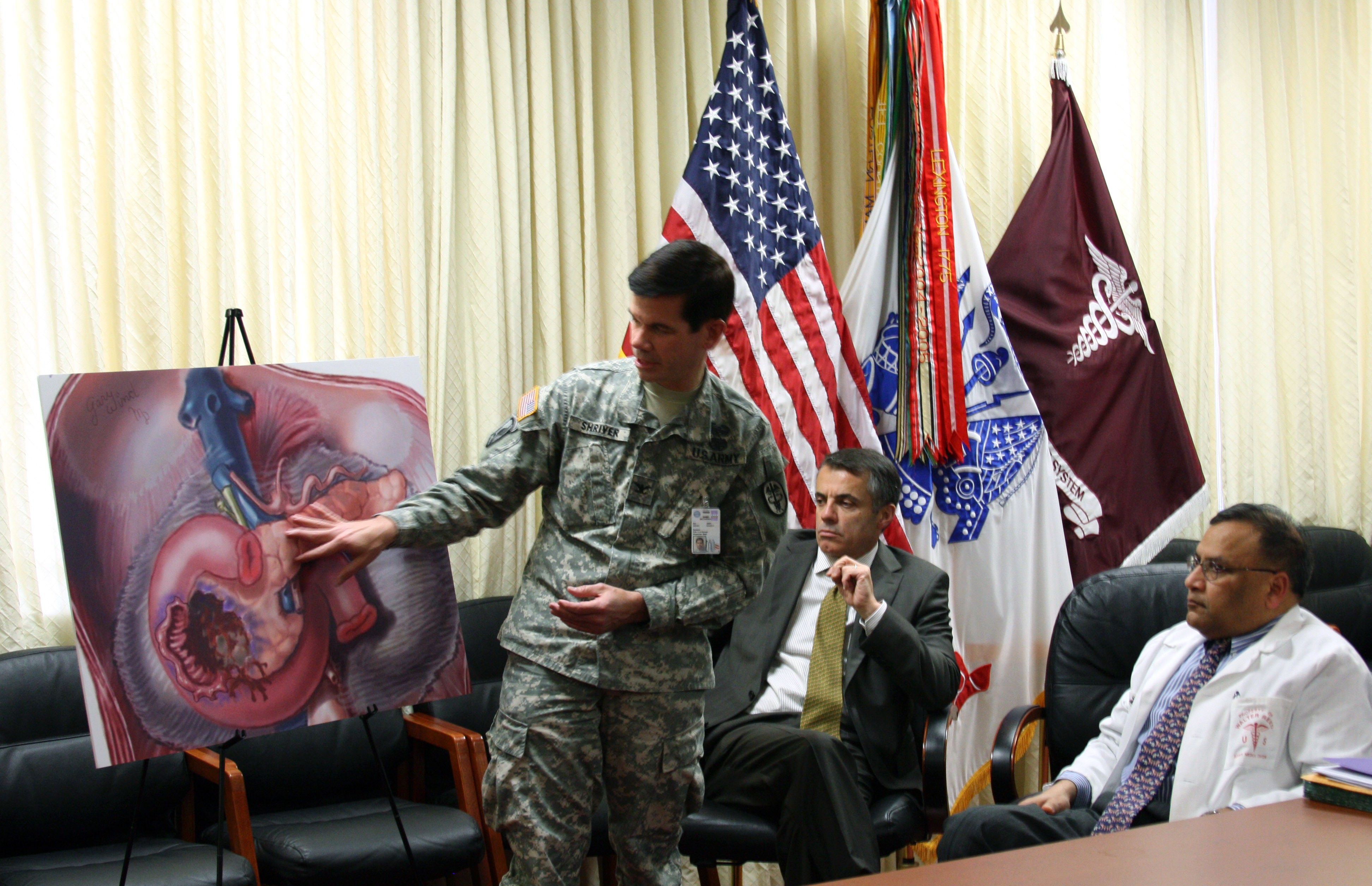
WASHINGTON (Dec. 17, 2009) -- In an unprecedented surgery, Walter Reed Army Medical Center and the University of Miami collaborated to perform the first pancreas islet cell transplant Thanksgiving Day on an airman whose pancreas was injured so severely in Afghanistan it had to be removed.
While serving with an Army unit in Afghanistan, 21-year-old Senior Airman Tre Porfirio was shot three times in the back by an insurgent Nov. 21. Seventy-two hours and 8,000 miles later, Porfirio was at Walter Reed with injuries so extensive it would require 11 surgeries to reconstruct his abdomen.
Porfirio was taken to the operating room where Col. Craig D. Shriver, chief of general surgery, found the pancreas damaged to the point it was leaking dangerous enzymes that were causing blood vessels and tissue to breakdown.
"The only possible course of action at the time was to remove the remainder of his pancreas which would predictably lead to a severe form of life-threatening and life-style-limiting diabetes," Shriver explained to reporters at a press conference Tuesday.
Risks for this type of diabetes include blindness, kidney failure, amputations, and strokes as well as daily insulin injections for the rest of his life.
That's when the surgical team called the University of Miami and put together a plan to ship the damaged pancreas to Florida to harvest the cells that produce insulin (called islet cells) and immediately ship them back to Walter Reed to be transplanted into Porfirio's liver. Over the last eight years of war, Walter Reed has seen only 28 pancreatic injuries and only one of this devastating nature.
All of this to be done overnight, the day before Thanksgiving.
"I knew who the main players were in this case," said Dr. Rahul Jindal, transplant surgeon. "I picked up the phone and called [Dr. Camillo Ricordi, chief of cellular transplantation, University of Miami] and, without hesitation, he said, 'For a wounded warrior, I'll bring my whole team.'"
"Being able to serve a wounded warrior who risked his life to defend us all, I can think of no better way to spend Thanksgiving," Ricordi said.
In islet cell transplantation, the insulin-producing islets are isolated from the donor pancreas and then reinfused in a patient's liver where they begin to produce insulin, doctors explained.
"You turn the liver into a double organ as it takes on the function of the pancreas," Ricordi said. "Normally when similar procedures are done for Type 1 diabetes, the cells come from another person, so you need immunosuppressant drugs to keep them alive. Since we were able to use his own cells, he won't need to be on anti-rejection drugs."
The University of Miami team spent six hours isolating the islet cells before they were suspended in a specialized cold solution and flown back to Walter Reed. Ricordi helped coordinate the transplant with the surgeons through an internet connection and on Thanksgiving Day, Porfirio's own cells were successfully injected into a vein to his liver. After spending 24 hours without a pancreas, Porfirio's blood tests show his harvested islet cells are functioning well, and he is gaining back his strength everyday.
"For anyone within a six-hour flight range of Miami, there is no reason any pancreas should ever be thrown away," Ricordi said.

Social Sharing